Study in Australia
Why Choose
AUSTRALIA
Australia – Known for its diversity and welcoming people and famous for kangaroos, koalas and wide-open spaces, but not only this, the land is famous for its thousands of researches – led, internationally prestigious universities ranked among the top in the world. It offers a diverse range if study options for an international student, with more than 1100 institutions and over 22,000 courses to choose from. Australia is one of the popular English-speaking nations with the population of over 2.64 crore full of people with diverse cultural which makes it very attractive for international students.
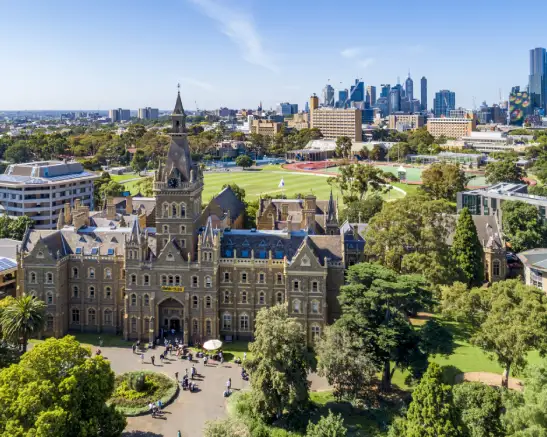
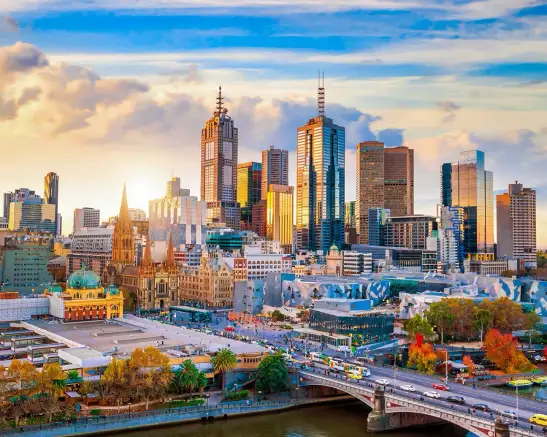
Australia is a popular destination for international students for several reasons. Firstly, its education system is renowned for its high quality and standards. Australian universities consistently rank among the top institutions in the world, offering a wide range of programs and degrees across various fields of study. The degrees obtained from Australian universities are globally recognized and respected, which can greatly enhance one's career prospects.
Moreover, Australia is a multicultural and diverse country, welcoming students from all over the world. This provides a great opportunity to network and build connections with people from different backgrounds, which can be beneficial for future career growth. Additionally, studying in Australia exposes you to a vibrant and dynamic culture, offering a unique and enriching experience.
Why To Select Australia

WORLD CLASS EDUCATION SYSTEM
Australia has introduced Education Service for Overseas Students (ESOS) act 2000 which protects rights of international students studying in Australia in order to ensure tuition fee protection scheme (TPS) and refund service. This TPS scheme is not available in other countries. Australian government also provides the facility of overseas student’s health cover (OHSC) for international students. After lots of research, I finally concluded that Australia is the best place for me to pursue my educational career further and acquire enough skills and knowledge to develop my career.

EXCELLENCE AND INNOVATION
The Australian vocational and technical education is now recognized as among the best and most innovative in the world. High quality academic programs in science and technology fields are found in a great number in the universities. Institutions deliver practical and career-oriented training with adaptation of new technologies at a faster rate than in most other countries.

GLOBAL RECOGNITION
As the Australian qualifications are recognized by employers and leading educational institutions in many countries around the world, studying from there acts as a valuable point to every student’s professional resume. Degrees through the AQF make it easy for other countries to identify the level of qualification a degree from Australia holds. Universities offering education to overseas students are required to register under the Commonwealth Register of Institutions and Courses for Overseas Students (CRICOS). Registration with the CRICOS validates an Australian Institution as meeting the required standard of education.

ADVANTAGE TO WORK AFTER GRADUATION
The recent changes of government policy make it easier for an international student to work in Australia once they complete their studies as per the policy and that can add value to their resume and makes then job ready for industry, internationally.

DIVERSITY AND MULTICULTRAL ENVIRONMENT
Australia is a safe, multicultural, friendly, and harmonious society. People from around 150 countries have migrated to Australia, making Australia one of the most culturally diverse countries in the world. Multicultural nature of Australian society means international students are readily accepted by other students, and teachers are experienced in teaching classes to students from many countries.

STUDENT SUPPORT SERVICES
Australian universities offer a wide range of student support services to help you settle into new life in Australia. Education providers follow strict quality control and taking care of government accreditation measures so you can be assured you will get the best services. Major universities have dedicated international student support staff and centre, offering practical advice and support on issues like legal rights, job skills and opportunities to meet and socialise with other students and group.

POST-STUDY WORK OPPORTUNITIES
Australia provides post-study work visas that allow international students to gain work experience and potentially settle in the country after completing their studies. These visas provide a pathway to permanent residency, offering long-term career and lifestyle benefits.
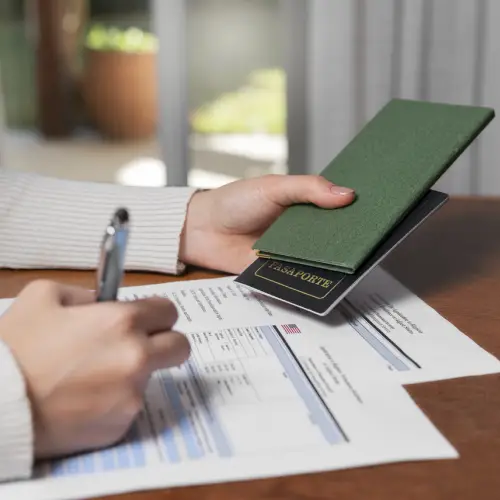
POST STUDY WORK PERMIT
The Temporary Graduate Visa (subclass 485) has two streams or categories. The first is the Graduate Work Stream and the other is the Post Study Work Stream. The difference between the two is essentially the kind of qualification an international student has gained.

PART TIME WORK OPPORTUNITIES DURING STUDIES
International students in Australia have certain work rights that allow them to work while studying. These work rights are governed by the Australian government’s Department of Home Affairs. As an international student, Earlier, you are generally allowed to work up to 40 hours per fortnight (every two weeks) but now with the new rules you can work upto 48 hours per fortnight ( Every two Weeks ) during the academic semester, and unlimited hours during semester breaks. This includes both paid work and voluntary/unpaid work. It’s important to note that some courses may have specific work restrictions, so it’s always best to check with your education provider to understand any limitations that may apply to your specific situation. Additionally, it’s important to ensure that you have a valid student visa that allows you to work. Most student visas automatically grant permission for work, but it’s always a good idea to check the conditions of your visa.Working part-time while studying in Australia can be a great way to gain work experience, support yourself financially, and immerse yourself in the local culture. However, it’s also important to ensure that you are able to balance your work commitments with your academic responsibilities.
Preffered Location
SYDNEY
A capital of NSW and the most popular city in Australia, Sydney is located on the south east coast of Australia and it is widely considered to be one of the livable and beautiful cities in the world. It is not only full of cultural and attractions but also a home of many Australia’s top businesses. With over 250 languages spoken and an immigrant strength of over a million people, international students will feel at home while studying in Sydney. Sydney is home to 6 public universities for international students, with their respective overall student populations.
- Macquarie University – 43,000 Students
- University of New South Wales – 56,000 Students
- University of Sydney – 61,200 Students
- University of Technology Sydney – 43,200 Students
- Western Sydney University – 44,400 Students
- Australian Catholic University – 29,000 Students (On various campuses across Australia)
MELBOURNE
This time The Economist Intelligence Unit (EIU) assessed more then 170 cities across different categories and Melbourne’s not only Australia’s most liveable city, but now is the 3rd most liveable and friendliest city in the world. Also, the study Melbourne hub offers free and confidential information, referrals and practical support for international students in Victoria. Quality of education as Melbourne is well known for its top educational system and its world leading universities are equipped with cutting edge facilities, an experience faculties and high standard student services support, research lab and innovation centres.
Some universities to consider in and around Melbourne and Victoria: Deakin University, Swinburne University of Technology, RMIT University, La Trobe University,Victoria University, The University of Melbourne, Monash University, CQ University Melbourne Campus
ADELAIDE
Adelaide is home to three state universities all ranked in the top 2% worldwide. Numerous private universities and specialist higher education institutions are also present, all offering quality education to international students. Adelaide is located on the coast and is surrounded by beautiful beaches and stunning landscapes. The city is also known for its parks and gardens, which offer a tranquil escape from the hustle and bustle of city life. Whether you’re looking for adventure or relaxation, Adelaide has something to offer.
Adelaide is the world’s third most livable city, with a vibrant atmosphere and natural beauty on its doorstep. With over 40,000 international students from 130 countries choosing to study, live and work in Adelaide, it is evident that there is so much to experience beyond the classroom.
PERTH
The internationally recognised qualifications gained in Perth will pave your way to a rewarding and successful career. Perth offers one of the highest standards of living in the world, and yet is more affordable than many other study destinations. International students receive a 40 per cent discount on all public transport and buses within Perth’s city centre are free for everyone. Western Australia is the perfect place for aspiring scientists! The State’s five universities are at the forefront of science and technology, and are involved in cutting edge research projects with other leading institutions around the globe. Perth has ‘regional’ classification, so if you study a bachelor's degree or above, you can add an extra year to your Temporary Graduate visa (subclass 485).
BRISBANE
Brisbane is the capital city of Queensland with a population of nearly 2.2 million, and is the third most populous city in Australia. The cost of living is currently on the rise in all parts of the world. Yet, compared to many other cities in Australia, Brisbane is a more affordable place to live, especially considering it is the third-largest city in Australia. Brisbane offers world-ranked education from a number of different universities. There are three universities in Brisbane, offering courses of study from Law and Medicine through Business, Marketing, Tourism, IT, and Biotechnology. The universities in Brisbane are:
- Queensland University of Technology
- University of Queensland
- Griffith University
Cost Of Studying
| COURSE | EXPENSES | APPROX IN INR |
|---|---|---|
| English Language Studies | Aud 300 To 500 Per Week | Rs. 16,094.53 to Rs. 26,824.21 per week |
| Certificate And Diploma Courses | ||
| Undergraduate Degree | Aud 20,000 To Aud Aud 45,000 | Rs. 10,72,968.40 to Rs. 24,14,178.90 |
| Postgraduate Programs | Aud 22,000 To 50,000 Aud / Year | Rs. 11,80,265.24 to Rs. 26,82,421.00 / Year |
| Diploma | Aud 5,000 To Aud 8,000 | Rs. 2,68,242.10 to Rs. 4,29,187.36 |
| Vocational Education and Training (VET) Courses | Aud 4,000 To Aud 22,000 | Rs. 2,14,593.68 to Rs. 11,80,265.24 |
REQUIREMENTS AND ENTRY CRITERIA FOR STUDENT VISA
Choosing Australia as your study destination is exciting and important step for your bright future and before you take this step there are requirements and some important details.
One of the most important things you’ll need is a student visa, specifically the Student visa (subclass 500).
→ Meet English Language Requirements
If you are not a native English language speaker, you’ll need to supply a certificate of results from an approved English language test, because Australian educational courses are taught in English. This certificate will prove to the Australian Government that you meet the minimum English proficiency levels needed to succeed in your given course.
Graduate Diploma
- You must have achieved an undergraduate qualification equivalent to an Australian bachelor's degree.
- A minimum IELTS Academic score of 6.5 or a TOEFL score of at least 79.
Bachelors
- Secondary school qualification, equivalent to an Australian Year 12 certificate.
- IELTS - minimum 6.0 or TOEFL - 67
- Statement of purpose
Masters
Undergraduate qualification equivalent to a bachelor's degree, honours degree, or graduate diploma in Australia.
- IELTS Academic - 6.5 or TOEFL - 79
- GRE/GMAT
- References, statement of purpose & Resume
- Work experience proof
- A police check or a working with children check from your home country.
Doctorate
Honours degree, master's degree by coursework with a research component, or an equivalent certificate from a recognised university.
- IELTS Academic - 6.5 or TOEFL - 79
- Work experience proof
- A police check or a working with children check from your home country.
Exams required to Study in Australian Universities for Indian Students
The exam requirements for studying in Australian universities can vary depending on the institution and the course of study. Here are some of the common exams that you, as an international student, may be required to take:
English Language Proficiency Tests: (Undergraduate and Graduate)
- International English Language Testing System (IELTS)
- Test of English as a Foreign Language (TOEFL)
- Pearson Test of English (PTE)
- Cambridge English: Advanced (CAE).

→ Academic Entry Requirements
Academic requirements (including English language level) will vary depending on the course you want to study. General guidance
- English language courses: See 'Proof of English Proficiency' below for more details.
- Schools: Entry requirements vary between schools, and sometimes by state and territory.
- Vocational education and training (VET): In most cases, there are no entrance exams for VET institutions. However, some courses may require you to have studied specific subjects or completed work experience.
- Higher education undergraduate courses: You will need to have an Australian Senior Secondary Certificate of Education (Year 12) or equivalent. Some undergraduate courses may also have specific prerequisite subjects.
- Higher education postgraduate course: You must have completed at least one degree at the undergraduate level. Education providers may also consider your research ability or relevant work experience.
→ Have Adequate Health Insurance
OSHC will help you:
- Pay for medical or hospital care while studying in Australia.
- Pay for most prescription medicines.
- Provide you with ambulance cover in emergencies.
You and your family members must be covered by Overseas Student Health Cover (OSHC) from an approved Australian health insurance provider, unless an 'Exception' applies.
→ Have Enough Money & Proof Of Financial Stability (proof of sufficient funds)
To receive an Australian student visa, you must prove that you have enough money to support yourself throughout your stay. There are two options for meeting this requirement:
- Provide bank statements, evidence of grants or scholarships. This will prove that you have enough money to cover all your costs and expenses through your course, such as travel, course fees and rent.
→ Genuine Temporary Entrant (GTE) Requirement
To meet the Genuine Temporary Entrant (GTE) requirement, you must write a statement that addresses two criteria:
- That you are genuinely coming to Australia to study and not for any other reason.
- That you will only be residing in Australia temporarily (and not overstaying your visa).
In your statement, include details on your ties to home (such as your friends and family, or a job that you have to return to) as well as the value of the course to your future career or academic goals.
By including these details, it will prove both your intention to return home at the end of your visa and your true intention to study in Australia.
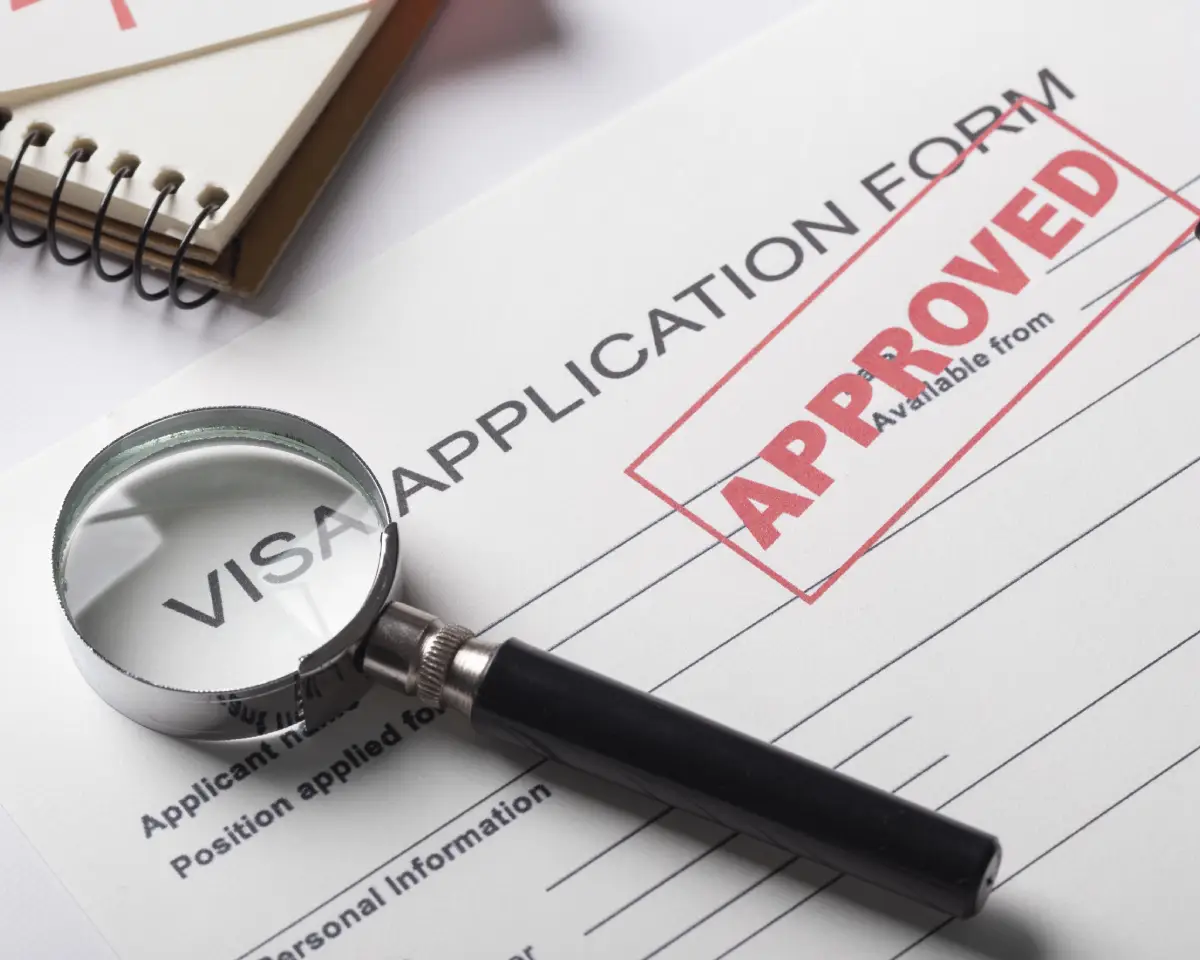
Scholarships
Australian universities offer plenty of scholarship opportunities to deserving candidates. There are also grants, scholarships, and bursaries offered by the government, private and public establishments.
These scholarships consist of varying eligibility criteria and monetary value. So, ensure that you check up on which scholarships you qualify for best to ensure your financial strain is reduced to the most and you benefit the best! To help you, we have given each of the Scholarships, Bursaries and Financial awards below that are given by prominent institutions and universities to eligible students to help grant a boost to their motivation to achieve even greater success in their studies.

Australia Awards
The Australia Awards Scholarships (AAS) program is highly prestigious and competitive. It offers government-funded grants to students from a selection of developing countries who can show leadership qualities and a drive for change. The program is designed to equip students with the skills and knowledge needed to return home and contribute to their nations’ development upon graduation.

Education provider scholarships
Australian education providers regularly offer scholarships to qualifying international students, based on academic merit. You can search for education provider scholarships on our Course Search tool. If you can’t find what you’re looking for, it’s always a good idea to contact the admissions team or international office at the provider you are applying to for more information.

Destination Australia
The Destination Australia Program (DAP) is an Australian Government program that funds eligible tertiary education providers to offer scholarships to domestic and international students to study in regional Australia. Destination Australia scholarships are available to students studying courses ranging from a Certificate IV through to a doctorate (such as a PhD) for up to four years in regional campus locations across Australia. This means any location outside of major cities in Australia.

Australian Government Research Training Program (RTP)
The Australian Government Research Training Program (RTP) supports domestic and international students undertaking research doctorate and research masters level degrees. Find out more about the Research Training Program at the Department of Education website. Applications for these scholarships are made directly to a participating university.
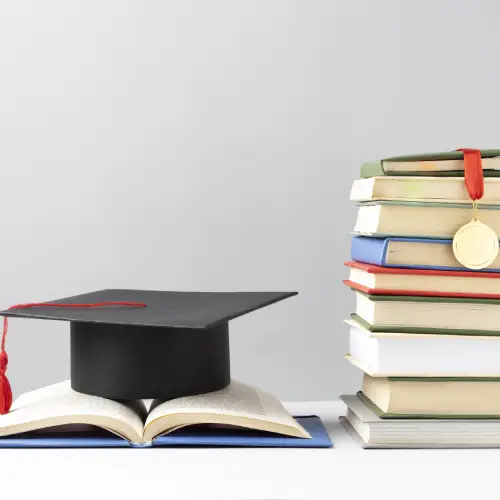
Documents Required
- Passport
- IELTS/PTE Score
- All academic documents
- Marriage certificate if Married
- Work experience letter
- Covid vaccination certificate
- Statement of Purpose
- Proof of sufficient funds
- CV/Resume
- Health Cover
- Passport Photo
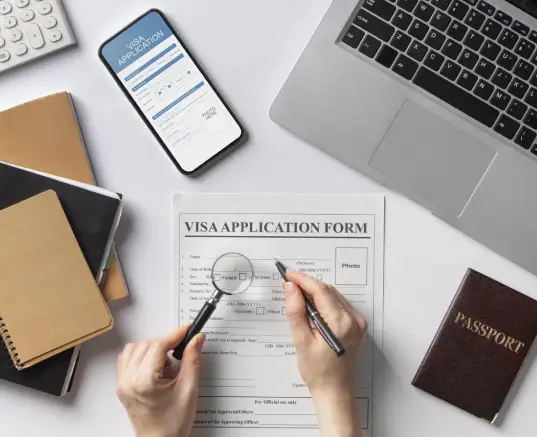

Cost of Living
Accommodation costs
- Hostels and guesthouses: $90 to $150 per week
- Shared rental: $85 to $215 per week
- On campus: $90 to $280 per week
- Homestay: $235 to $325 per week
- Rental: $165 to $440 per week
Other living expenses
- Groceries and eating out: $80 to $280 per week
- Gas and electricity: $35 to $140 per week
- Phone and Internet: $20 to $55 per week
- Public transport: $15 to $55 per week
- Car (ongoing cost): $150 to $260 per week
- Entertainment: $80 to $150 per week
